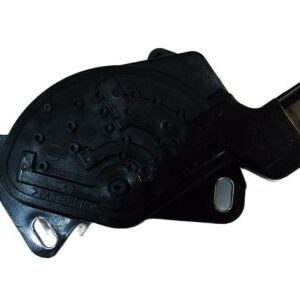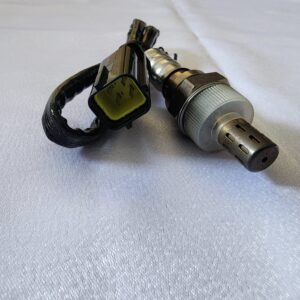Title: Unlocking the Magic of Speedometer Sensors: Your Guide to Smooth Rides and Accurate Readings
Introduction:
In the intricate dance of modern automotive technology, few components are as crucial to both safety and performance as the speedometer sensor. Often overlooked but absolutely essential, these tiny devices play a pivotal role in ensuring your speedometer delivers accurate readings and your driving experience remains smooth and reliable. Join us as we delve into the world of speedometer sensors, uncovering their function, importance, and the ways they contribute to a seamless journey on the road.
Understanding Speedometer Sensors:
Speedometer sensors, also known as vehicle speed sensors (VSS) or wheel speed sensors, are specialized electronic components installed in vehicles to measure the speed at which the wheels are rotating. They work in conjunction with the vehicle’s speedometer to provide real-time feedback on your vehicle’s velocity, enabling you to monitor your speed and maintain safe driving conditions.
How Do Speedometer Sensors Work?
Speedometer sensors typically consist of a magnet and a coil of wire. As the wheels rotate, the magnet produces a magnetic field that induces a voltage in the coil, generating an electrical signal proportional to the speed of the wheels. This signal is then transmitted to the vehicle’s electronic control unit (ECU) or instrument cluster, where it is interpreted and displayed on the speedometer.
Importance of Speedometer Sensors:
The importance of speedometer sensors cannot be overstated. These small yet critical components serve as the eyes of your vehicle, providing vital information on your speed and enabling the proper functioning of various safety systems, such as anti-lock brakes (ABS) and traction control.
Key Functions of Speedometer Sensors:
1. Accurate Speed Readings: Speedometer sensors ensure your speedometer provides accurate readings, allowing you to comply with speed limits and drive safely.
2. ABS and Traction Control: Speedometer sensors play a crucial role in the operation of ABS and traction control systems, helping to prevent wheel lock-up and loss of traction during braking and acceleration.
3. Cruise Control: Speedometer sensors enable the proper functioning of cruise control systems, allowing you to maintain a steady speed without constant manual input.
4. Transmission Shifting: Some vehicles use speedometer sensors to assist in transmission shifting, ensuring smooth gear changes based on vehicle speed.
Maintenance and Replacement:
Proper maintenance of speedometer sensors is essential to ensure accurate readings and reliable performance. Over time, speedometer sensors may become contaminated with dirt, debris, or metal shavings, leading to inaccurate readings or failure. Regular inspection and cleaning of speedometer sensors, as part of routine maintenance, can help prevent issues and ensure proper function. If problems arise, such as erratic speedometer readings or malfunctioning ABS or traction control systems, professional diagnosis and replacement of the speedometer sensor may be necessary to restore proper operation.
Conclusion:
In conclusion, speedometer sensors may be small in size, but their impact on driving safety and performance is significant. By providing accurate speed readings and enabling the proper functioning of various safety systems, speedometer sensors play a crucial role in ensuring a smooth and safe journey on the road. So, the next time you glance at your speedometer, remember the unsung hero working behind the scenes to keep you moving at the right pace – the speedometer sensor.
Only 1 left in stock (can be backordered)
$29,137.67
Title: Unlocking the Magic of Speedometer Sensors: Your Guide to Smooth Rides and Accurate Readings
Introduction:
In the intricate dance of modern automotive technology, few components are as crucial to both safety and performance as the speedometer sensor. Often overlooked but absolutely essential, these tiny devices play a pivotal role in ensuring your speedometer delivers accurate readings and your driving experience remains smooth and reliable. Join us as we delve into the world of speedometer sensors, uncovering their function, importance, and the ways they contribute to a seamless journey on the road.
Understanding Speedometer Sensors:
Speedometer sensors, also known as vehicle speed sensors (VSS) or wheel speed sensors, are specialized electronic components installed in vehicles to measure the speed at which the wheels are rotating. They work in conjunction with the vehicle’s speedometer to provide real-time feedback on your vehicle’s velocity, enabling you to monitor your speed and maintain safe driving conditions.
How Do Speedometer Sensors Work?
Speedometer sensors typically consist of a magnet and a coil of wire. As the wheels rotate, the magnet produces a magnetic field that induces a voltage in the coil, generating an electrical signal proportional to the speed of the wheels. This signal is then transmitted to the vehicle’s electronic control unit (ECU) or instrument cluster, where it is interpreted and displayed on the speedometer.
Importance of Speedometer Sensors:
The importance of speedometer sensors cannot be overstated. These small yet critical components serve as the eyes of your vehicle, providing vital information on your speed and enabling the proper functioning of various safety systems, such as anti-lock brakes (ABS) and traction control.
Key Functions of Speedometer Sensors:
1. Accurate Speed Readings: Speedometer sensors ensure your speedometer provides accurate readings, allowing you to comply with speed limits and drive safely.
2. ABS and Traction Control: Speedometer sensors play a crucial role in the operation of ABS and traction control systems, helping to prevent wheel lock-up and loss of traction during braking and acceleration.
3. Cruise Control: Speedometer sensors enable the proper functioning of cruise control systems, allowing you to maintain a steady speed without constant manual input.
4. Transmission Shifting: Some vehicles use speedometer sensors to assist in transmission shifting, ensuring smooth gear changes based on vehicle speed.
Maintenance and Replacement:
Proper maintenance of speedometer sensors is essential to ensure accurate readings and reliable performance. Over time, speedometer sensors may become contaminated with dirt, debris, or metal shavings, leading to inaccurate readings or failure. Regular inspection and cleaning of speedometer sensors, as part of routine maintenance, can help prevent issues and ensure proper function. If problems arise, such as erratic speedometer readings or malfunctioning ABS or traction control systems, professional diagnosis and replacement of the speedometer sensor may be necessary to restore proper operation.
Conclusion:
In conclusion, speedometer sensors may be small in size, but their impact on driving safety and performance is significant. By providing accurate speed readings and enabling the proper functioning of various safety systems, speedometer sensors play a crucial role in ensuring a smooth and safe journey on the road. So, the next time you glance at your speedometer, remember the unsung hero working behind the scenes to keep you moving at the right pace – the speedometer sensor.
| Warehouse | Inventory at warehouse 2 |
|---|


Get E-mail updates about our latest products and special offers.
Sensors and More is Jamaica’s ultimate online auto parts store. Established in 2020, we specialize in genuine electrical parts for Japanese, Read more…
Reviews
There are no reviews yet.